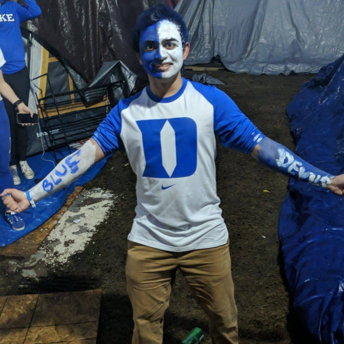ML Projects
Stochastic Optimization of Reinforcement Learning
Advisor: Dr. Amrit Singh Bedi
Currently working on developing novel optimization method for RL in the average reward setting.
Superresolution
Advisors: Dr. Cynthia Rudin and Dr. Aayush Bansal
Teammate: Jerry Liu
Worked on patch-based method for portrait superresolution using interpretable representation learning. Focused on clustering patches of face (eyes, mouth, nose, etc.) to train a model on each cluster to learn more patch-specific details.
Automating 2D Classification in Cryo-Em Single-Particle Reconstruction Pipeline
Advisor: Dr. Alberto Bartesaghi
Teammate: Jeevan Tewari
Course: Duke CS 590: Computational Cryo-EM 3D Imaging
Research project for final assignment. In the Computational Cryo-EM 3D Imaging pipeline, software programs, such as cisTEM, create classes of images based on the particle orientation and provide class averages. A human picks classes with high-quality averages and the class images are used for reconstruction. I devised an approach using unsupervised representation learning to automate the selection of high-quality images.
Neural Style Transfer
Instructor: Dr. Yiran Chen
Course: Duke ECE 590: Computer Engineering Methods for Deep Learning
Final class project where I implemented “Texture Networks: Feed-forward Synthesis of Textures and Stylized Images” by Ulyanov et al. Link to my code on Github.
Neural Network Dimension Reduction with Topological Constraint
Advisor: Dr. Xiuyuan Cheng
Program: DoMath Summer 2020
Using MNIST and synthetic datasets with known manifolds, compared Variatinal Autoencoders to spectrel embedding in preservation of topology in the latent space. Summary of work here
Interpretable vs Black-box Recidivism Models
Advisor: Dr. Cynthia Rudin
Teammates: Caroline Wang and Bin Han
Published in Journal of Quantitative Criminology, 2022
Processed criminal history data from Broward County, FL and the state of Kentucky. My team then assessed the performance and fairness of various interpretable and black-box algorithms. Our findings show that they perform comparably to each other and we thus advocate against the use of black-box and privatized algorithms in pre-trial risk assessments.
Recommended citation: Caroline Wang, Bin Han , Bhrij Patel, Cynthia Rudin (2022). “In pursuit of interpretable, fair and accurate machine learning for criminal recidivism prediction.” Journal of Quantitative Criminology. https://link.springer.com/article/10.1007/s10940-022-09545-w
